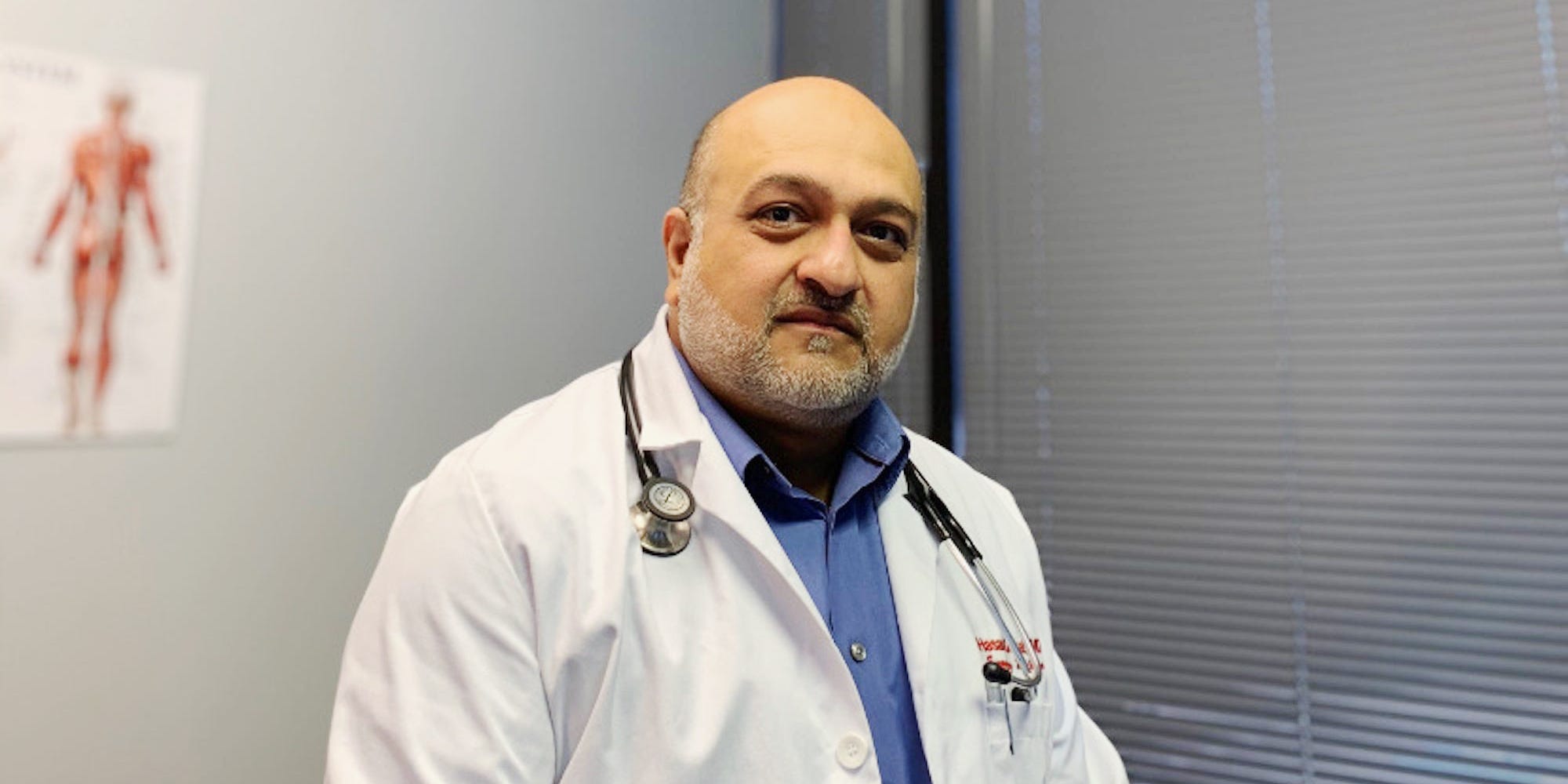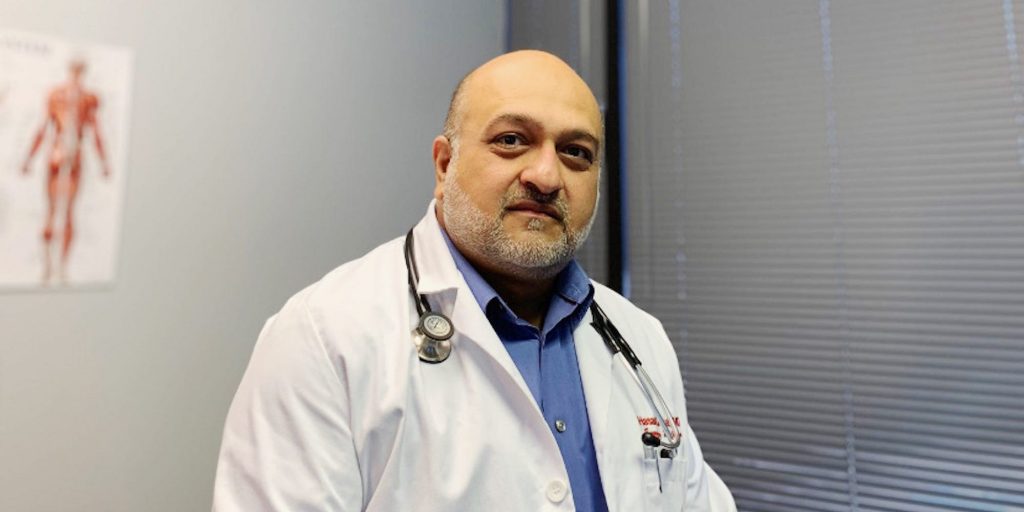
Courtesy of David Oates/PR Security
- Dr. Hasan Gokal went door-to-door administering vaccines that were about to expire in December.
- Local authorities in Houston charged him with theft, and a grand jury acquitted him last month.
- Gokal told Insider and door-to-door approach would not work to increase vaccination rates now.
- See more stories on Insider's business page.
A Texas doctor who was accused of stealing COVID-19 vaccine doses and acquitted by a grand jury said increasing vaccination rates need to be a local effort.
Dr. Hasan Gokal told Insider he was relieved a judge dismissed the charges against him late last month.
Gokal was working with Harris County Public Health at a vaccination site in December when he went door-to-door to find eligible people, which included his wife, to give remaining doses of a Moderna vial that was about to expire. District Attorney Kim Ogg brought theft charges against Gokal as a result.
"I couldn't be more grateful … and finally, it's that sense of relief, that sense of closure and not having to constantly worry about the prospect of having to go back to court and this thing rising up another day," Gokal told Insider. "Finally, it's over."
In March, The Texas Medical Board had also dismissed the cases against Gokal and he has since resumed working in the emergency room in the Methodist Hospital network part-time.
He told Insider the case meant he was too stressed and burnt out to be able to dedicate his attention to patients full-time.
"I felt that if I did a few shifts, that would be where I could give them the most of my time, my effort without the feeling of burnout of sort, or on the other hand being less than a good doctor, which I would never want to do," he said.
Gokal told Insider he's seeing COVID-19 cases rise in the hospital and noticed that those unvaccinated tend to come in with worse illness than those who are vaccinated.
He said getting more people vaccinated has to be an effort taken by trusted local entities.
President Joe Biden had previously suggested taking a door-to-door approach to getting people vaccinated.
"We need to go to community by community, neighborhood by neighborhood, and oftentimes, door to door - literally knocking on doors - to get help to the remaining people protected from the virus," Biden said during a press briefing.
When the vaccines first rolled out, priority was given to people who were older or had underlying conditions, who usually already had a rapport with their doctor.
"And when the doctor said, 'Hey, you really should get it. They trusted them and did what they were told," Gokal said.
Those with the lowest vaccine rates now are usually young and healthy, Gokal said.
Gokal, who went door-to-door to give out the remaining vaccine doses before they expire, said this wouldn't work with this group most in need of accurate information because those younger may not have that established relationship with physicians, and so local entities need to meet them in places like religious institutions where there's already established trust.
Biden's administration is also working to equip local medical experts and professionals with resources to get their communities vaccinated, as opposed to a larger national campaign.
Gokal said there are many different reasons why someone may not want to get vaccinated and sentiments and experience in different parts of the country vary, so a local approach would meet communities where they are and specifically address their concerns and anxieties.
However, he's still worried that by the time the vaccination rate rises, there would have been enough time for the virus to mutate again. The slow rate of vaccination could result in variants more transmissible than the rapidly surging Delta, which could further evade immunization.
"If people are not immunized and keep passing it along and keep having a reservoir of people in which this thing keeps growing and mutating and mutating, it'll find a way to mutate into a worse variant that will come around and infect people who were otherwise immunized already in the resurgence," Gokal said. "So this resurgence thing certainly is a possibility and can be made worse by people refusing to get vaccinate and knock it down all at once."

